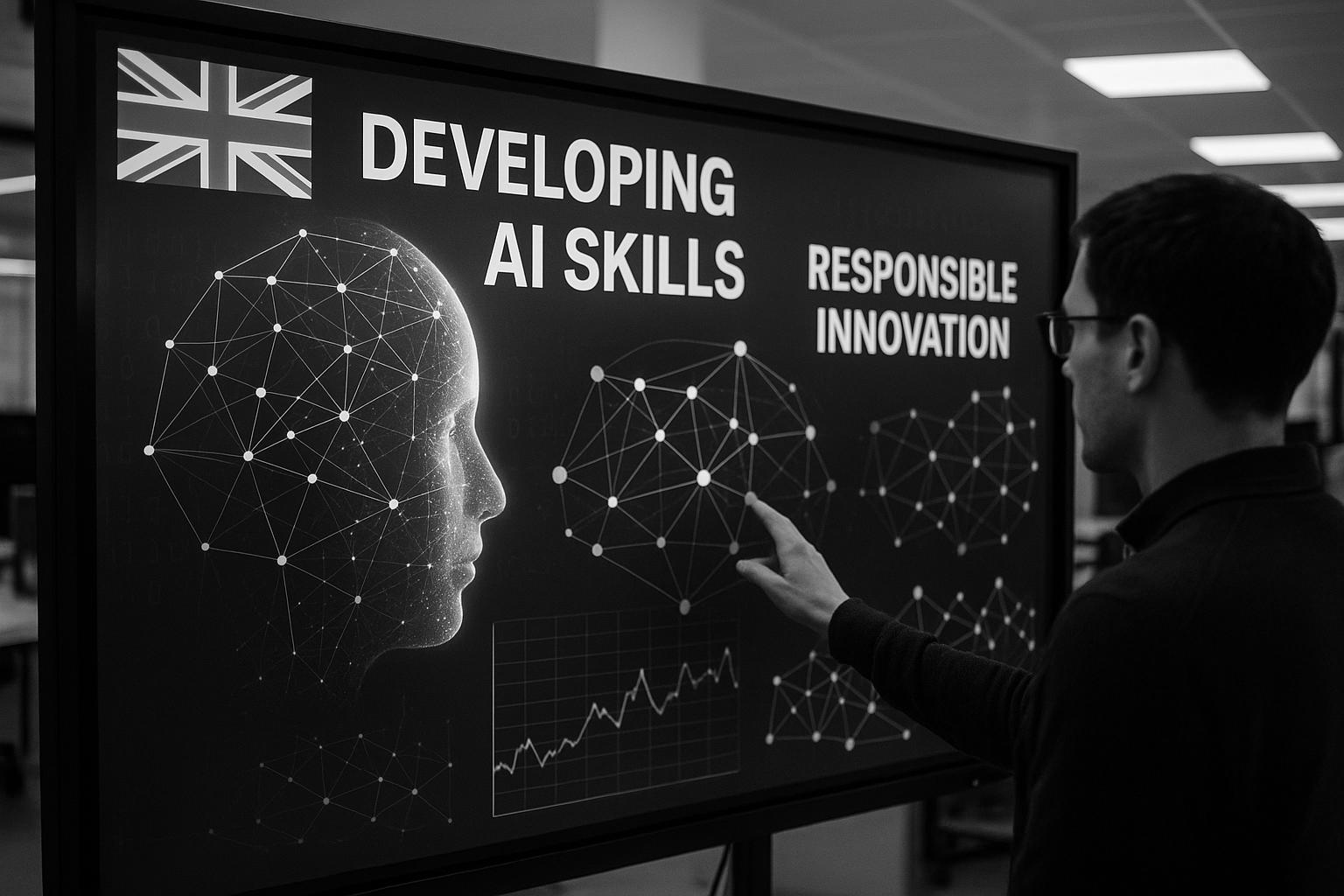The confluence of digital skills development and artificial intelligence (AI) has taken centre stage in the UK, particularly as the government intensifies its efforts to position the nation as a leader in AI innovation. At the recent London Tech Week, the spotlight was on newly unveiled initiatives meant to bridge the growing skills gap, aligning with private sector ambitions to cultivate a robust AI ecosystem.
A Salesforce survey, which gathered insights from 110 C-level executives, revealed that 78% of UK organisations are currently utilising agentic AI, with an additional 14% poised to adopt this technology within six months. Notably, a significant 84% of respondents expressed intentions to enhance their teams' AI training. This data underscores a pressing need for educational frameworks capable of preparing the workforce for the digital landscape of tomorrow.
A pivotal part of this narrative is the collaboration between Salesforce and Brunel University’s Centre for Artificial Intelligence. This partnership aims to set a precedent for responsible AI development and implementation. Professor Ashley Braganza, Dean of Brunel Business School, elaborated on this initiative, reminiscing about the centre's humble beginnings in 2018 with just three members and a modest budget of £3,000. It has since expanded to a team of around 30, emphasising both research and direct collaboration with industry partners.
He likened the current technological shift to the transformative impact of Isambard Kingdom Brunel himself, arguing that today’s technological advances necessitate a careful examination of their implications for society and industry. “This technology,” he warned, “like other technologies, is not going to be neutral. There will be winners and losers.” Braganza advocates for a conversational shift in policy-making to prioritise both innovation and regulatory frameworks, suggesting that a clear structure is essential for sustainable business investments in AI.
The notion of establishing trust in AI systems emerged prominently in Braganza's discourse. He stressed the imperative for responsible deployment of AI, which Salesforce heavily prioritises as one of its core values. “We have a huge amount of responsibility to make sure that AI is deployed responsibly. Trust is at the core of what Salesforce is doing,” he emphasised, conveying that this conversation must resonate across both innovation and regulation spectrums.
Furthermore, the disquiet surrounding job displacement due to automation was addressed, with Braganza asserting that AI will not only change existing roles but also create entirely new job categories we have yet to conceptualise. Preparing graduates for careers that could span decades requires a forward-looking educational approach, and he urged for further research on emerging skills necessary for future employment landscapes.
In terms of broader AI investments, Braganza remains optimistic about the UK’s positioning in the global arena. He noted the country's strong research base but highlighted a critical gap in support during the crucial growth phases for emerging companies. The more robust investment strategies seen in the US at this stage of development remain a benchmark to aspire to. While the UK is making strides to close this gap, particularly through initiatives like the newly opened Salesforce AI Centre in London, more work remains to be done.
Salesforce’s AI Centre, established as part of the company’s $4 billion commitment to the UK, seeks to tackle the digital skills gap head-on. Since its opening, it has already engaged with over 12,500 visitors and hosted more than 220 events aimed at fostering community and upskilling. According to Zahra Bahrololoumi, CEO for UK and Ireland, this facility represents more than just a physical investment; it is a transformative step towards embedding AI literacy into the fabric of local communities.
Further supporting this initiative, Salesforce is allocating $2.35 million in grants to British organisations focused on digital literacy and STEM career pathways. Bahrololoumi remarked on the urgency of this mission: “We just made a significant investment across three education organisations... to help with digital and AI skilling literacy.”
In the face of slow governmental acceptance regarding the establishment of a national Online Digital Skills Platform, the pressure is mounting on tech companies to champion the development of a sustainable AI economy. Salesforce’s proactive efforts signify a crucial step toward addressing the digital divide and ensuring that a broad spectrum of the population is prepared to engage with the rapidly evolving landscape of AI.
📌 Reference Map:
- Paragraph 1 – [1], [2]
- Paragraph 2 – [1], [5]
- Paragraph 3 – [3], [6]
- Paragraph 4 – [1]
- Paragraph 5 – [1]
- Paragraph 6 – [4]
- Paragraph 7 – [1], [3]
- Paragraph 8 – [1], [6]
Source: Noah Wire Services
